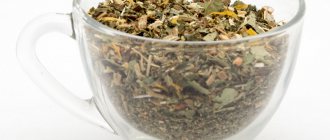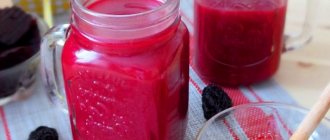For several years now, the “productive fasting” movement has been gaining momentum in Silicon Valley. The engineers who started it call themselves biohackers. These include the heads of major technology companies such as Evernote, All turtles, HVMN (read as “human”) and many others. They claim that going without food for long periods of time improves productivity. I decided to find out how true their words were (at least from the point of view of the disgusting man) and conducted my own experiment, forgetting about food for three days. If you're going to try something like this, you'd better read my experience first.
Jeff Wu, co-founder of HVMN, began fasting in 2015, when rumors about the controversial diet had yet to leave Silicon Valley. He gathered the WeFast community, which accepted into its ranks everyone who was happy to undertake a bold experiment on themselves. True, the participants were not as stupid as me, and tracked the levels of glucose and other useful substances in the body in real time. Later they were joined by more wealthy people, such as Phil Libin, the former director of Evernote.
At that time, Phil weighed 117 kilograms, and after several months of the new regime (which he was delighted with), he lost 36 kilograms. After that, he called the decision he made the best in his life:
“There is a slight euphoria. My mood improved, I became more focused and at the same time full of energy. I feel much healthier. It helps me be a better CEO. Fasting is definitely one of the best decisions I've made in my entire life."
Phil Libin before and after
At the beginning of 2021, Jeff Wu led a seven-day fast that involved over a hundred WeFast members. According to Wu, such abstinence helps improve performance much more than junk food:
“You might think that after seven days without food, a person would be distracted and scrounging for food, but after two or three days, hunger subsides and ketone levels in the body rise. The body and brain get energy from alternative sources.”
Ketone bodies are a group of chemicals produced by the liver as a result of metabolism. They occur after a long period of fasting (two or more days on average), called ketosis. Due to them, the functioning of muscle tissue, kidneys and other internal organs is supported.
Since Jeff Wu pointed out the textbook three days, I decided not to torture myself any longer to test his theory. However, there is a significant difference between him and me: he weighs 74.8 kilograms with a height of 180 centimeters, my weight is 11.8 kilograms less, with a similar height. Therefore, at first I doubted whether I would go to another world by the fourth day, but I immediately forgot about it, eating my last dinner.
And now let's get to the point. What conclusions did I draw after three days of hunger strike:
- To fast properly, you need to be fat. The more ballast, the better. Without receiving food, the body itself will absorb the accumulated fat for the benefit of the carrier.
- For those who lift bags or lay sleepers, fasting will definitely harm them. On the second day, the body cannot withstand even light loads (again, provided that you are thin). Therefore, such a diet is definitely not suitable for physical exercise.
- A hunger strike forces the body to work according to the principle of inverse proportion. By constantly stuffing food into yourself, you get a lot of energy, but you spend it on all sorts of nonsense, like YouTube videos. When you refuse food, your energy becomes significantly less, but all of it goes towards completing the most important and pressing tasks. (What can be called an increase in performance)
- Lack of energy also causes you to not think about more than one problem at a time. Achieving goals is sequential, not parallel, and this is good.
- If you decide to fast, you should first soberly assess your own strength. For Jeff Wu, 7 days may not have been a serious challenge, but with less weight a person may have difficulties on the third day. Therefore, first step on the scale and think about what period is most acceptable for you.
Breaking out of fasting
In order not to harm the body, we come out of fasting gradually. You should absolutely not pounce on food the next day. Overeating leads to serious consequences in the form of impaired digestion. We begin the transition to a normal diet with apples and natural yogurt without fillers.
Next, we add fresh salads from cabbage, carrots and other vegetables, seasoned with olive oil, to the menu. Drinking herbal teas, unsweetened compotes and fresh fruits is allowed. We include meat and fish in the diet last.
One-day fasting on water: rules
In this article I would like to share my experience about one-day fasting on water. Tell us about the basic rules for carrying it out. Firstly, a one-day water fast means a 36-hour fast, and a day water fast means a 12-hour fast. In fact, there are few rules of conduct. The most important thing is a strong intention to start and continue. The rest will come on its own. Each person will have their own personal fasting experience that is unlike any other. But let's return to the rules of one-day fasting.
Rule 1.
It is recommended to start a 36-hour one-day fast on water in the evening, that is, a light dinner until 18:00 and that’s it... Then we eat NOTHING the whole next day. Nothing at all. We drink only clean water. No limits. Competent sources disagree on what kind of water to drink. Some people write that only distilled water, others that you can use regular boiled water. Personally, I drink any water, even mineral water (just not salty). Daytime fasting on water differs only in the timing. It comes out after 12 hours.
Rule 2.
After we have eaten nothing all day and only drank water, the long-awaited night comes. Long-awaited because at this time the cleansing process continues, but you don’t think about food, because... sleep soundly. And now the rule itself. It is better not to drink water before going to bed (at least 2 hours before), because there is already a lot of water in the body, and in the morning some people may have a slightly swollen appearance. Actually this is not a problem either. Everything goes by very quickly. And after fasting, does the skin become somehow new? Fresh and beautiful. During fasting, the body does not age, but rather intensively rejuvenates. Check it out for yourself and you will be pleasantly surprised. Let's move on. Night has come. I can sleep just fine at night on an empty stomach. Although everything is individual. On the contrary, someone may have insomnia. Not scary.
Rule 3.
In the morning, after waking up, I strongly recommend (based on my experience and the experience of some people) not to immediately run towards the kitchen. Everything has its time. It’s better to lie down a little, become aware of yourself and your feelings. And only then, get up and go about your morning business. (If you stand up suddenly during a one-day fast on the water, you may feel dizzy).
Breaking out of a one-day water fast
Each person will have their own experience here. Competent sources recommend breaking a one-day fast with a salad of fresh cabbage and carrots. It will go like a brush throughout the body and clean out everything unnecessary. Personally, I prefer to eat a tasty apple, and after 2 hours you can eat as usual, but a light breakfast is preferable. A friend of mine does a one-day fast on Friday, so that on Saturday morning, without getting out of bed, she can eat a tangerine and fall asleep again for two hours. And after that, she says, she feels great. You can drink a glass of water with a teaspoon of lemon or honey 20 minutes before any meal.
On the day of breaking a one-day water fast, a light fruit and vegetable diet is recommended. Moreover, vegetables do not have to be raw. Vegetables can be boiled and baked (not fried), then they, together with morning fruits, will help maintain the body in its pristine purity. Paul Bragg recommends doing 36-hour and 12-hour water fasts once a week. It has been confirmed that after a year of such weekly fasting, many chronic diseases begin to go away.
That's it, the rules are over. Now I would like to write about some not very pleasant moments during a 36-hour fast.
The first point is psychological. How to hold out? Oh, scary! What if it doesn't work out? There's nothing scary. It didn’t work out now, but it will definitely work out next time. If it doesn’t work out, the main thing is not to reproach yourself, otherwise it won’t work out later. You love yourself, which means you love your body. And if you want your body to serve you for up to 120 years, then you will definitely try again the delicious cleansing one-day fasting on water, which will make your body healthy, strong and beautiful, strengthen your spirit and pour an ocean of energy into you. By the way, it would be more correct to say it differently: after fasting, energy does not flow into you, but your energy is released. While a person lives an ordinary life (breakfast, lunch, dinner), most of his own energy goes into processing food. It’s not without reason that after a hearty lunch, the average person really wants to lie down and relax. Why? Yes, because the energy went to the digestive organs in order to quickly help it cope with the processing and assimilation of the lunch eaten. It has also been noticed that after a light lunch we do not feel tired, since the body quickly copes with a small and easily digestible amount of food. And finally, during fasting, the human organs involved in the digestive system rest!!! And the internal energy now released can be spent on more serious goals. It is noticed that the next day after a one-day fast on water, the energy level jumps so much that in one day you can do more than in the entire previous week.
The second point is that some people freeze during a one-day fast on the water, I am one of them. At first I just dressed very warmly these days, and then in some literature I found information that an excess of water in the body leads to hypothermia. I solved this issue simply. I started drinking warm water. Surprisingly, I stopped freezing. So not only hot tea warms, but also simple warm water.
The third point during a one-day fast on water is some unpleasant sensations in various parts of the body. For example, my head starts to hurt very badly. But all this is also strictly individual and does not happen to everyone. The scientific literature on fasting says that such ailments occur mainly in a very polluted body. Moreover, it can even be an absolutely thin body. But over time, the unpleasant sensations disappear to almost nothing - the cleaner the daily diet and the more regular the one-day fasting. There is no need to be afraid of these sensations, no need to take any pills. Everything will return to normal as soon as the digestive organs start working again. The presence of unpleasant sensations during a one-day fast just means that you are on the right track, that fasting is working, and toxins are leaving the body. But I want to repeat once again that everything is strictly individual. And during a one-day or full-day fast on water, you can feel simply wonderful and wonderful. And this is very good.
General information
Starting fasting and breaking it are the two most important stages of the healing process through fasting.
In most cases, health problems and deterioration in well-being are observed precisely when the important principles of entering and exiting fasting are violated. Many experts quite rightly say that breaking a fast is more important for health than the hunger itself. If we consider that during periods of hunger the body is actively cleansed, and with a gradual return to normal nutrition it is saturated with useful substances, then this theory becomes quite understandable. This article will talk about how to properly break fasting, as well as what important points you need to take into account in order to feel good both during the transition period and after it.
We weigh the pros and cons
The benefits and harms of this method balance on the brink, and it is very difficult to say which is greater - the pros or cons. Let's try to figure it out.
First you need to find out whether you can even fast. So, if you have such features and diseases, you will have to forget about the method:
- Cardiovascular diseases;
- Pregnancy and breastfeeding;
- Undergoing treatment;
- Diabetes;
- Anorexia or low body mass ratio;
- Exacerbation of chronic diseases;
- Gallstones;
- Gastrointestinal disorders;
- Stomach ulcer.
If you have none of the above, you are ready to start fasting.
Period between 3-00 and 5-00
The pre-dawn hours of sleep are devoted to rest and restoration of the respiratory system, primarily the lungs. At this time, a person’s breathing becomes deep and measured, and the heartbeat slows down somewhat. These are the conditions that are necessary for the lungs to rest and recover after hard work. However, in some cases, recovery is extremely difficult, which affects the quality of sleep. If you wake up between three and five o'clock in the morning, it means that something is wrong with your breathing apparatus. As a rule, at this time, sleep deteriorates among heavy smokers and people working in hazardous industries with polluted air.
The Chinese associate this time of awakening with disappointment and emotional trauma. In the pre-dawn hours, people wake up who have lost their support in life or are in a situation where their life ideas have been broken.
Back to list Previous article Next article











